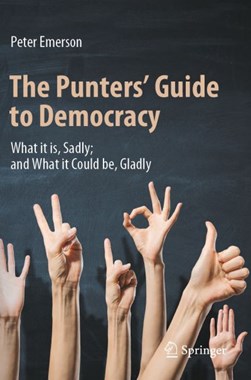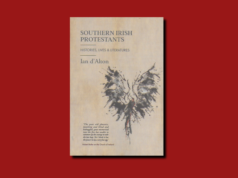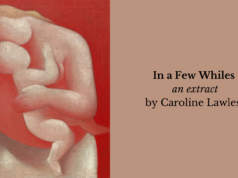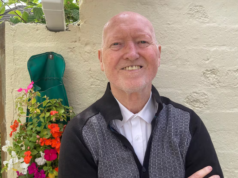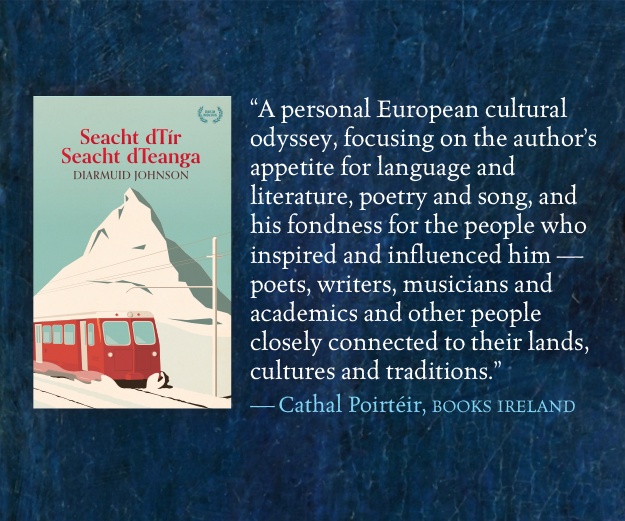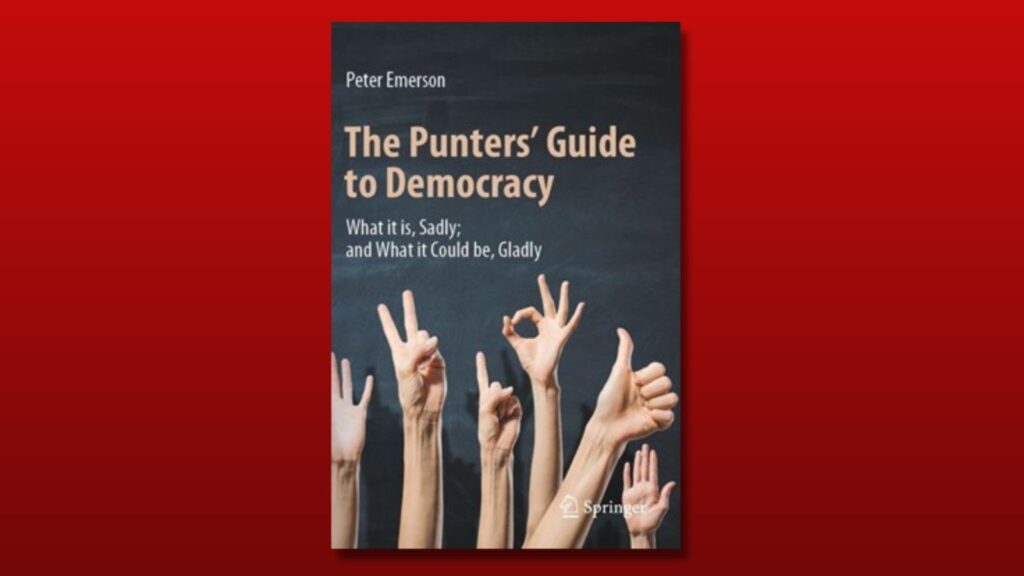
The Punters’ Guide to Democracy|Peter Emerson|Springer|ISBN: 9783031069864|€34.99
‘Democracy, we say, is majority rule. (So we are all little bolsheviks.)’
—Peter Emerson on asking better political questions
by Peter Emerson
“Are you Protestant or Catholic?” they demanded. Belfast, 1975. “God knows!” was my favourite answer. “Are you British or Irish?” they persisted. But it was another silly question: dad was a Protestant from Cork, mum a Catholic from Cheshire.
Another binary question of those days related to a much bigger conflict: “Are you communist or capitalist?” So having traversed Belfast’s ‘peace-line’ on an almost daily basis – initially, I was a community worker in Ardoyne – I decided to cross the more appropriately called Iron Curtain, cycling in 1986 across two/three Iron Curtains: from West to East Germany, Check Point Charlie in Berlin, and then into Poland.
Another binary question of those days related to a much bigger conflict: “Are you communist or capitalist?”
The times were a’changing. Mikhail Gorbachev was receiving western advice on democratisation: you need elections, they said, and then parliament will decide; in a word, majoritarianism. But he doesn’t speak English. And some advisers don’t speak Russian. So when the latter suggested, “Mr Gorbachev, you need majoritarianism,” the translators stated, “Mikhail Sergeyevich, vam nuzhen (you need) bolshevism.”
Democracy, we say, is majority rule. (So we are all little bolsheviks.)
The Russian большинство means ‘majority’ and the word ‘bolshevik’ means ‘member of the majority’ – (by 19 votes to 17, with 3 abstentions, so it wasn’t a majority anyway, just the largest minority).
Democracy, we say, is majority rule. (So we are all little bolsheviks.) But most political problems aren’t binary, and “this policy, yes or no?” is often yet another silly question. In a pluralist democracy, few if any problems are binary. There is perhaps one exception: “Which side of the road shall we drive on?”
Yet the only country to have a referendum on this topic – Sweden in 1955 – had not two but three options on the ballot paper: ‘left’, ‘right’ and ‘blank’. And 40,000 people put on their boots to vote ‘blank’—to as it were, go with the flow.
Brexit
Brexit, of course, was also a multi-option debate: the UK in the EU, the EEA, the WTO, whatever. David Cameron posed just one question: “In the EU, yes or no?” and a small majority said ‘no’.
So what about the other options? And if you were asking a bunch of kids what vegetable they would like for lunch, there’d probably be a majority against turnips, and a second majority against swedes, a third against broccoli… in a nutshell, a majority against everything.
David Cameron posed just one question: “In the EU, yes or no?” and a small majority said ‘no’.
In her indicative votes on four options, Theresa May got just that: a majority against everything. Next? Boris. And he asked the MPs not a singleton, ‘X, yes-or-no?’ but a pairing, ‘X or Y?’ because a pairing always gives you something. “D’you want ‘my deal’ or ‘no deal’?” he asked parliament. And ‘his’ won.
But of course it won. ‘Any deal’ would have beaten ‘no deal’ – that vote was yet another b….y silly question.
Plagued by majority votes
The whole world, it seems, is plagued by majority votes. “Are you Sunni or Shia?” “Arab or Jew?” “Hutu or Tutsi?” “Left-wing or right-?” As if whichever group makes up the majority then has the right to rule.
The abuses are numerous. In 2014, Putin asked the people of Donetsk if they wanted to be independent (of Ukraine), and supposedly they said ‘yes’. Eight years later, he changed his mind and asked a completely different question: united (in Russia), and apparently, they’d changed their minds too?
Asking different questions
It is all such horrible, dangerous nonsense. So, back in 1970s Belfast, I asked myself, why don’t we ask different questions? Not “what are you?” but ‘who are you?” Not “d’you want this, yes or no?” but “what would you like?”
Accordingly, in 1986, the New Ireland Group held its first People’s Convention. Pretty well everything from Sinn Féin to the political wing of the UDA – professors, politicians, paramilitaries, priests, people – over 200 of them, sat in a tiered circle, in silence. John Hewitt read his Anglo-Irish Accord, the atmosphere was palpable… and then they debated the constitution.
Anyone could suggest anything (as long as it complied with the UN Charter). They broke into workshops, paused for a multi-option lunch, debated again in plenary and finally, on a ballot of ten options, cast their preferences, so to identify the option with the highest average preference. And an average, of course, is not just a majority.
John Hewitt read his Anglo-Irish Accord, the atmosphere was palpable… and then they debated the constitution.
It worked. “NI,” they agreed, “was to have devolution and power-sharing, under a Belfast-Dublin-London tripartite agreement,” a sort of mini-Belfast Agreement, just 12 years ahead of its time.
So why hasn’t this voting procedure been used before? I asked myself. But it has. In the 1870s, the Rev Charles Dodgson advocated just such a system, he really should have written a book about it… but he wrote Alice in Wonderland instead – Lewis Carroll. He too had been preceded, by Jean Charles de Borda in 1770, Cardinal Nicholas of Cusa in 1433, and maybe even Ramón Llull in 1299.
Furthermore, this preferential points system of voting has been used in Kiribati for presidential elections, in Porto Alegre for participatory budgeting, in Euro-vision song contests – it is, in a word, archetypal.
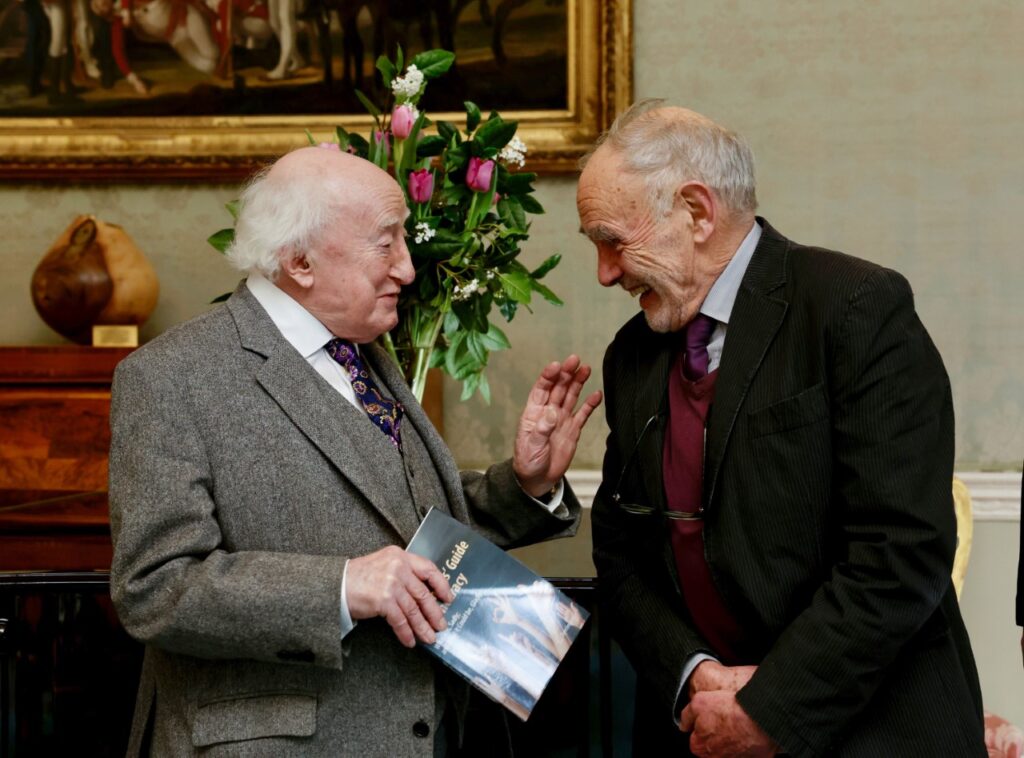
Binary ballots everywhere
My first voting book, Consensus Voting Systems, was in 1991. I’d already published a samizdat, my 1978 travelogue, Inflation? Try a Bicycle, about a 10,000 km cycle ride in Africa – Dervla out-Murphied, wrote one – and there now followed a few others on voting, not least From Belfast to the Balkans, the story of cycling across Bosnia, twice, in winter and in war, if only to say on my return to these shores that majoritarianism doesn’t work there either.
Eventually, I found a publisher, Springer in Heidelberg, and we’ve now released six books together, all about voting… because these binary ballots are everywhere. Not only in conflict zones like the Balkans and Ukraine, not only in the USSR as was and Russia as is, not only in dysfunctional governments as in Washington, but also in China, where in 1989 (it is said), the CCP Standing Committee took a binary decision on the question of military intervention in Tiān’ānmén. Yet another horrible, dangerous, silly question.
I’ve had book launches in many venues: twice in Áras an Uachtarián, once in the House of Lords, and — travelling overland with my bicycle but, I’m getting old, it’s now a fold-up — in universities/institutes in Brussels, Paris, Berlin, Vienna, Sarajevo, Tbilisi, Moscow, Beijing, Tiānjīn, Xúzhōu and Taipei.
Generally speaking, however, the media and much of academia are not interested, and few are willing to even experiment with multi-option voting. Yet the first government to do so was in 1197, in China, in the Jīn Dynasty, so maybe the Jurchens and the Khitans knew a thing or two.
Ah ha, another book?
Peter Emerson, Director, The de Borda Institute.







